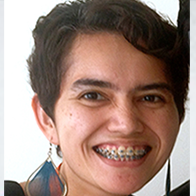I read with interest the responses that followed the statement made by Datuk Seri Idris Jusoh, Education Minister II, on Malaysian education being of world-class standards.
Idris himself issued a response to the critics of his earlier statement, published in The Malaysian Insider on February 25, 2015 (http://www.theinsiderarchived.com/sideviews/article/what-it-means-to-be-world-class-idris-jusoh).
I applaud the response by Idris, and am grateful for his affirmative on the Education Ministry being firmly behind those of us who are striving for the betterment of education in this country.
I always get a tad too emotional when discussing Malaysian education. I am a product of public education. Admittedly, being a thoroughbred of Tunku Kurshiah College and a graduate from Universiti Malaya does put me in a more privileged position than most.
Do I feel like I have received quality education? The short answer is yes.
Nonetheless, from my own personal, privileged experience – I know that there is still much room for improvement. It is for this reason that I decided to return home four years ago; to a Malaysia that I seem to barely know anymore.
Take the debate about whether Malaysian education is world class as an example. We have a minister making a statement, validly from his point of view and the response from the public in general is disbelief.
Are we that insecure, Malaysia? That we no longer believe in our strengths, choosing instead to focus on our weaknesses?
Shouldn’t the following discourse be on what can we improve on and how can we execute the plan towards betterment?
I have to admit that every time I ask a question in class and received the roar of silence as an answer, it demotivates me.
As a student, I am inquisitive to the point of being annoying, and I am sure most of my own lecturers can’t stand me. It is in this vein that I always nag my students to read, not just about science and recent breakthroughs, but also local news and around the subject matter at hand.
It worries me when my class is not aware of the dengue outbreak happening around them, and there I was about to start a lecture on the molecular characteristics of the virus.
Asking their opinion about whether they themselves think that they are receiving world-class education, only one student answered me.
It is as if the younger generation has been ingrained with the ideology that it is wrong to ask questions, while I prefer to invite them to have a discussion with me, rather than sitting in for a lecture.
In his response, Idris mentioned “rankings are not the ‘be all and end all’ as they are not always able to capture the more subtle values of higher education, such as prioritising access over outcomes, teaching over research and publications, building infrastructure or the capacity of young lecturers and so forth”.
I have to agree with the good minister. And if I may so add, education is for life. It should not be restricted only to classrooms, nor should it “end” when one obtain a string of As and graduates.
I consider myself a student of science still, and I have added learning about our country’s history, constitution and understanding my faith into the mix now.
Formal education should give every Malaysian the basis to do so. The skills to be analytical and critical, the engagement to acquire knowledge and the drive to focus on a field one loves while concurrently having the ability to divulge in other areas of interest.
Am I saying this from a privileged existence based on race and class? Yes.
It is for this reason that I think there is still an urgent need to improve our public schools and universities. Only select few can afford private education, and we must do away with race-based policies in enrolling students into our public higher institutions, focusing instead on merit and qualifications.
I admit, I would not have been able to afford my Bachelors degree, let alone my PhD, without government scholarship. But I also believe that I did not solely have deserved the scholarship based on race. There was hard work, dedication, and obsession behind it, too.
As much as I sometimes do show my age by berating the behaviour of our younger generation, I still believe in our youths. I do have to keep asking my students to read, to sit together regardless of race or class in lecture halls and lab benches, to be patient with life in general.
I have been in their shoes: worked while studying and dumpster diving for expired-but-edible bread because I was too embarrassed to ask my parents for money, done that.
Being ridiculed for speaking English by those who think I am not Malay enough, while at the same time being told that my accent sounds weird and not English enough; that my writing lacks proper grammar – yes, that too.
But I keep going. Because that is what education is about.
Learning. Making mistakes and learning from them.
I ask that we, the public and especially those involved in education regardless of level or public/private, to keep imploring for better policies, while at the same time keep supporting education by allowing intellectual discourse, encourage reading, insisting on academic freedom and promoting the ability to keep asking questions. – March 4, 2015.
* This is the personal opinion of the writer or publication and does not necessarily represent the views of The Malaysian Insider.


Comments
Please refrain from nicknames or comments of a racist, sexist, personal, vulgar or derogatory nature, or you may risk being blocked from commenting in our website. We encourage commenters to use their real names as their username. As comments are moderated, they may not appear immediately or even on the same day you posted them. We also reserve the right to delete off-topic comments